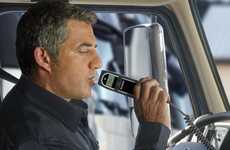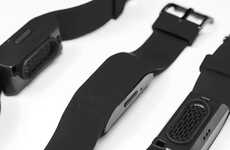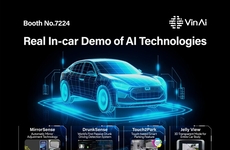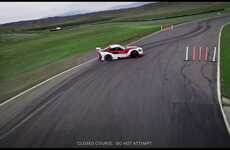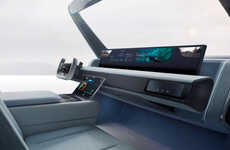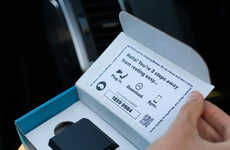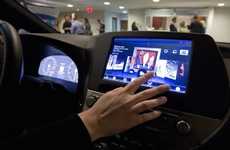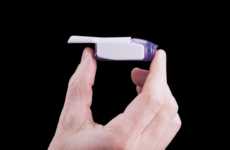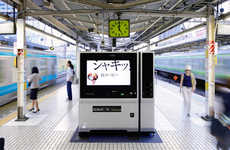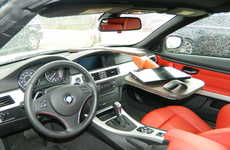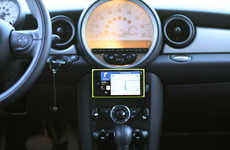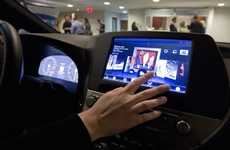
APMA's Connected Vehicle Will Disable Drunk Drivers From Starting the Engine
Alyson Wyers — June 24, 2014 — Autos
This connected vehicle can identify when its driver is drunk when it's still parked. A demo car showcased by the Automotive Parts Manufacturers Association (APMA) includes an onboard breathalyzer in addition to a range of other safety-related features. This device will not allow an intoxicated driver to start the car.
The UNX Car Platform 2.0 powered Lexus RX350 also includes built in 4G, WiFi and mobile charging unit. Embedded sensors also allow for gesture controls that will affect music, temperature, seat positioning and other non-driving specific tasks. These sensors can tell if the driver is falling asleep at the wheel and will result in an audible warning. Meanwhile the external sensors of the connected vehicle can detect weather, other cars and nearby objects (including the presence of emergency vehicles) to alert the driver.
The UNX Car Platform 2.0 powered Lexus RX350 also includes built in 4G, WiFi and mobile charging unit. Embedded sensors also allow for gesture controls that will affect music, temperature, seat positioning and other non-driving specific tasks. These sensors can tell if the driver is falling asleep at the wheel and will result in an audible warning. Meanwhile the external sensors of the connected vehicle can detect weather, other cars and nearby objects (including the presence of emergency vehicles) to alert the driver.
Trend Themes
1. Connected Vehicle Safety Features - The trend of connected vehicles with safety features like onboard breathalyzers and sensors for detecting driver fatigue and external hazards.
2. Gesture Control in Cars - The trend of cars incorporating gesture controls for non-driving tasks like adjusting music, temperature, and seat positioning.
3. Sensor-enabled Vehicle Alerts - The trend of connected vehicles using sensors to detect weather, other cars, nearby objects, and emergency vehicles to provide driver alerts.
Industry Implications
1. Automotive Manufacturing - Opportunity for automotive manufacturers to integrate advanced safety features like onboard breathalyzers and driver fatigue sensors in connected vehicles.
2. Consumer Electronics - Opportunity for consumer electronics companies to develop and integrate gesture control technologies for non-driving tasks in cars.
3. Smart Transportation - Opportunity for smart transportation industry to leverage sensor technology for improving driver alerts by detecting weather, other cars, nearby objects, and emergency vehicles.
1
Score
Popularity
Activity
Freshness

